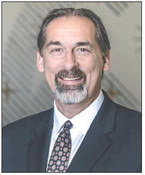2023 budget includes $21.20 assessment
GOLDEN RAIN FOUNDATION
by Ruth Osborn
managing editor
The Golden Rain Board of Directors approved a 2023 operating budget of $21 million that includes a per-apartment-per-month (PAPM) assessment of $21.20, up from $6.98 in 2022.
The budget was passed with one no vote—GRF Director Lee Melody— at a special meeting Sept. 29. Prior to passing the budget, the board voted on a separate motion to trim the assessment by transferring $500,000 from the capital fund to the reserve fund. The one-time transfer reduced the originally proposed assessment of $27.50 to $21.20, a savings of $6.30 a month or $75.60 a year PAPM.
After vigorous debate, the funds transfer was approved by the narrowest of margins. The vote was 9-8, with GRF directors lined up across the divide. Almost half the board— including GRF President Marsha Gerber, GRF Vice President William Thompson, GRF Treasurer Philip Friedman and past GRF President Susan Hopewell—voted against the funds transfer.
Also recommending against it was GRF Executive Director Jessica Sedgwick, GRF Finance Director Mallorie Hall and outgoing Finance Director Carolyn Miller.
But the directors who prevailed contended that the one-year cushioning would soften the blow of the unprecedented increase in assessments.
The hike is largely attributed to eight years of delayed GRF staff pay and benefits upgrades. Other factors include an 8.3% inflation rate, the highest in more than 40 years. That’s driving up costs in all sectors, including janitorial contracts, utilities, cybersecurity and computer maintenance, and liability insurance.
“We need to pay our people properly,” said GRF Director Sandy Geffner, who made the motion to transfer funds. “We are making up for years with no pay raises, but we can cushion the blow (to shareholders).”
GRF Director Susan Jacqueline agreed: “We are trying to walk a tightrope of maintaining this beautiful community and not overburdening LW residents. I’d rather reduce (the fee) this year.”
GRF Director Lee Melody countered that opinion: “We have a fiduciary responsibility to do what is right for the entire community, a responsibility not to kick the can down the road.” He and others who voted against the motion cited the following reasons: Capital funds are clearly earmarked to cover the cost of new projects and should be used for that purpose alone; amenity fees are the only source of funding for capital improvement projects and are dependent on real estate sales; reserves are already underfunded this year; the money will have to be paid back next year; and the proposed transfer will decrease the overall capital fund by 17%.




